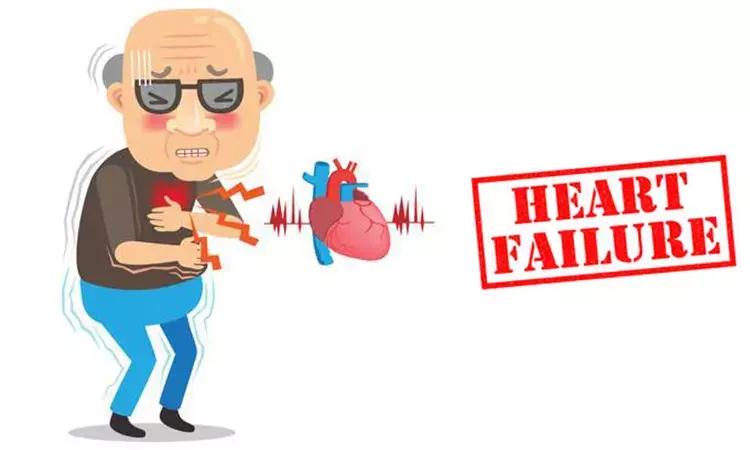Empagliflozin May Reduce Hospitalization And Death Risk In Heart Failure: Study
- byDoctor News Daily Team
- 24 July, 2025
- 0 Comments
- 0 Mins

According to a recent research, patients receiving empagliflozin therapy for heart failure, showed a lower risk of cardiovascular death or hospitalization for heart failure than those in the placebo group, regardless of the presence or absence of diabetes.
Previous studies have shown that in patients with type 2 diabetes, sodium–glucose cotransporter 2 (SGLT2) inhibitors reduce the risk of hospitalization for heart failure and the risk of serious adverse renal events, benefits that are not seen with other antihyperglycemic drugs.
There is limited evidence regarding the effects of these drugs in patients across the broad spectrum of heart failure, including those with a markedly reduced ejection fraction.
The researchers designed a double-blind trial, with 3730 patients ,having an ejection fraction of 40% or less to receive empagliflozin (10 mg once daily) or placebo, in addition to recommended therapy. The primary outcome was a composite of cardiovascular death or hospitalization for worsening heart failure.
For the study sample,Adults (≥18 years of age) who had chronic heart failure (functional class II, III, or IV) with a left ventricular ejection fraction of 40% or less were eligible to participate in the trial. All the patients were receiving appropriate treatments for heart failure, including diuretics, inhibitors of the renin–angiotensin system and neprilysin, betablockers, mineralocorticoid receptor antagonists, and, when indicated, cardiac devices.
On data analysis, the following facts emerged.
· During a median of 16 months, a primary outcome event occurred in 361 of 1863 patients (19.4%) in the empagliflozin group and in 462 of 1867 patients (24.7%) in the placebo group .
· The effect of empagliflozin on the primary outcome was consistent in patients regardless of the presence or absence of diabetes.
· The total number of hospitalizations for heart failure was lower in the empagliflozin group than in the placebo group.
· The annual rate of decline in the estimated glomerular filtration rate was slower in the empagliflozin group than in the placebo group.
· Empagliflozin -treated patients had a lower risk of serious renal outcomes. Uncomplicated genital tract infection was reported more frequently with empagliflozin.
For the full article,follow the link: 10.1056/NEJMoa2022190
Primary source: The New England Journal of Medicine
Disclaimer: This website is designed for healthcare professionals and serves solely for informational purposes.
The content provided should not be interpreted as medical advice, diagnosis, treatment recommendations, prescriptions, or endorsements of specific medical practices. It is not a replacement for professional medical consultation or the expertise of a licensed healthcare provider.
Given the ever-evolving nature of medical science, we strive to keep our information accurate and up to date. However, we do not guarantee the completeness or accuracy of the content.
If you come across any inconsistencies, please reach out to us at
admin@doctornewsdaily.com.
We do not support or endorse medical opinions, treatments, or recommendations that contradict the advice of qualified healthcare professionals.
By using this website, you agree to our
Terms of Use,
Privacy Policy, and
Advertisement Policy.
For further details, please review our
Full Disclaimer.
Tags:
Recent News
Kerala waives Rs 10 lakh discontinuation penalty f...
- 09 November, 2025
Jharkhand health dept announces SOP for ICU and CC...
- 09 November, 2025
Doctors oppose Punjab govt's decision to set up me...
- 09 November, 2025
Daily Newsletter
Get all the top stories from Blogs to keep track.


0 Comments
Post a comment
No comments yet. Be the first to comment!